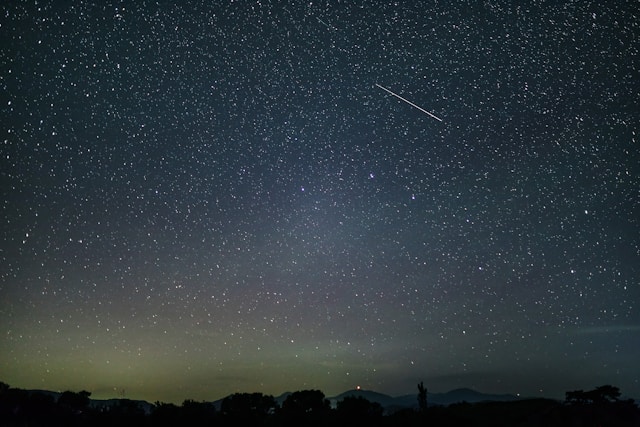Shooting stars light up the skies from Northumberland to Somerset as the Geminid meteor shower peaks, offering stargazers a final cosmic treat before the year’s end
The UK sky is ablaze with celestial magic as the Geminid meteor shower reaches its peak, delivering one of the most breathtaking night-time spectacles of the year. Hundreds of shooting stars streaked across the heavens in the early hours of Saturday, delighting stargazers from Northumberland to Somerset.
Known as one of the most intense meteor showers visible in Britain, the Geminids are famed for their brightness and frequency. Unlike many other meteor showers, which originate from comets, the Geminids are fragments of a mysterious asteroid named 3200 Phaethon. As these debris pieces enter Earth’s atmosphere, they burn up in a dazzling display of light, creating what many consider the most reliable meteor storm of the year.
Embed from Getty ImagesLindisfarne in Northumberland offered some of the most mesmerising views, with night photographers capturing streaks of light illuminating the rugged coastline. From rural villages in Somerset to dark-sky reserves in Scotland, the show drew amateur astronomers and casual sky-watchers alike.
The meteor shower, which peaks between 13 and 15 December each year, is best observed under clear skies away from urban light pollution. The Royal Astronomical Society recommends venturing to rural areas, ideally with a wide-open view of the night sky.
For those looking to catch the Geminids in their full glory, the conditions remain ideal tonight. Experts suggest looking towards the constellation Gemini in the eastern sky after sunset, although meteors will appear all across the sky. Patience is key, as observers may see between 50 and 120 meteors per hour at the peak.
The celestial light show is not just a visual feast—it’s a chance to connect with the universe on a grand scale. Dr Sarah Watson, an astrophysicist from the University of Oxford, explained, “The Geminids are a reminder of how dynamic our solar system is. These meteors are remnants of an asteroid that’s likely been shedding material for thousands of years. Watching them enter our atmosphere is witnessing a piece of cosmic history in action.”
Despite the frosty December weather, the spectacle is worth braving the cold. Experts advise bundling up in layers, finding a comfortable spot to recline, and allowing your eyes 20 minutes to adjust to the dark. Binoculars and telescopes aren’t necessary for viewing the meteors, as they are bright enough to be seen with the naked eye.
For city dwellers unable to escape light pollution, virtual observatories and live streams of the Geminid meteor shower are available, ensuring everyone can share in the wonder of the night sky.
The Geminid meteor shower is one of the last major astronomical events of the year, making it a fitting finale to 2024’s celestial calendar. As the meteors continue to streak across the sky tonight, they offer a moment of awe and reflection, a cosmic reminder of the beauty that lies beyond our world.
